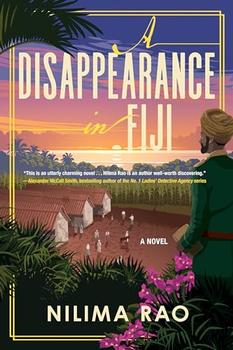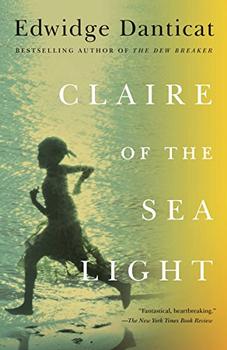Summary | Excerpt | Reviews | Beyond the book | Read-Alikes | Genres & Themes | Author Bio

A Novel
by Tash AwThe topic of cultures clashing has always been fascinating to me, and Map of the Invisible World by Tash Aw is a great example of how fiction can illuminate a complex history. By examining the lives of a few individuals during the struggle for independence in Indonesia, we see the pain, confusion and damage done to an entire country.
The story centers on the life of orphaned Adam, which serves as an effective metaphor for the struggle of a young nation trying to find maturity and security. No one in the book - whether indigenous or implanted - seems to have a home, or even know where home is or what it should look like. The story of a country with no past is really just millions of stories of people whose personal stories have disconnected from their own history. Even knowing your parents isn't the same as knowing your past.
The story is at once familiar and one-of-a-kind. I've read dozens of stories of displaced people in post-colonial nations, but I never felt like I had read this story before. Aw demonstrates that while the circumstances are sadly far from unique, the ways in which each individual is effected are specific and agonizing to those who must experience them.
People learn who they truly are when forced to examine themselves through someone else's cultural lens. Each main character has a tiny incident in their childhood that has haunted them with a glimpse of a hidden truth. Maybe it's true, or maybe it's merely an imagined truth that they prefer to their particular reality. But each of them tries to confront the future according to what they believe, regardless of the chaos and pain around them. None of them seems to succeed, but it appears to be the attempt that is important, not the accomplishment.
As a reader, I found myself pulled along with whatever emotion Adam or Margaret or Johan was feeling. When they were frantic, I was frantic for them. When they were hopeless, I was sure that nothing good could possibly happen. The writing is deceptively simple. It seems to be the straight-forward prose of a mystery or a whodunit, but it quickly insinuates itself into your emotional core so that you cannot stop until you know whether these poor people are going to be okay. The pain is powerfully rendered, but somehow a thing of beauty. Anyone familiar with post-colonial literature will be unsurprised by the lack of a clear hero or villain, and the fragmented narrative style is well-suited to the story of a nation trying to keep from pulling itself apart. This is a magnificently emotional story that still manages to surprise you in the end, not because the story itself is unusual, but because the path the book takes you on is one-of-a-kind.
A Note on the Sidebar
The Dutch, as English speakers refer to them, are citizens of The Netherlands, also known as Holland. Although the terms Holland and The Netherlands are effectively interchangeable, Holland originally referred to just one small area of the country (North and South Holland); while Netherlands (meaning Low Country) historically referred to the area that is now split between Holland and Flemish speaking Belgium.
![]() This review was originally published in The BookBrowse Review in January 2010, and has been updated for the
January 2011 edition.
Click here to go to this issue.
This review was originally published in The BookBrowse Review in January 2010, and has been updated for the
January 2011 edition.
Click here to go to this issue.

If you liked Map of the Invisible World, try these:

by Nilima Rao
Published 2024
A charming and atmospheric debut mystery featuring a 25-year-old Indian police sergeant investigating a missing persons case in colonial Fiji

by Edwidge Danticat
Published 2014
A stunning work of fiction that brings us deep into the intertwined lives of a small seaside town where a little girl, the daughter of a fisherman, has gone missing.
Idealism increases in direct proportion to one's distance from the problem.
Click Here to find out who said this, as well as discovering other famous literary quotes!
Your guide toexceptional books
BookBrowse seeks out and recommends the best in contemporary fiction and nonfiction—books that not only engage and entertain but also deepen our understanding of ourselves and the world around us.